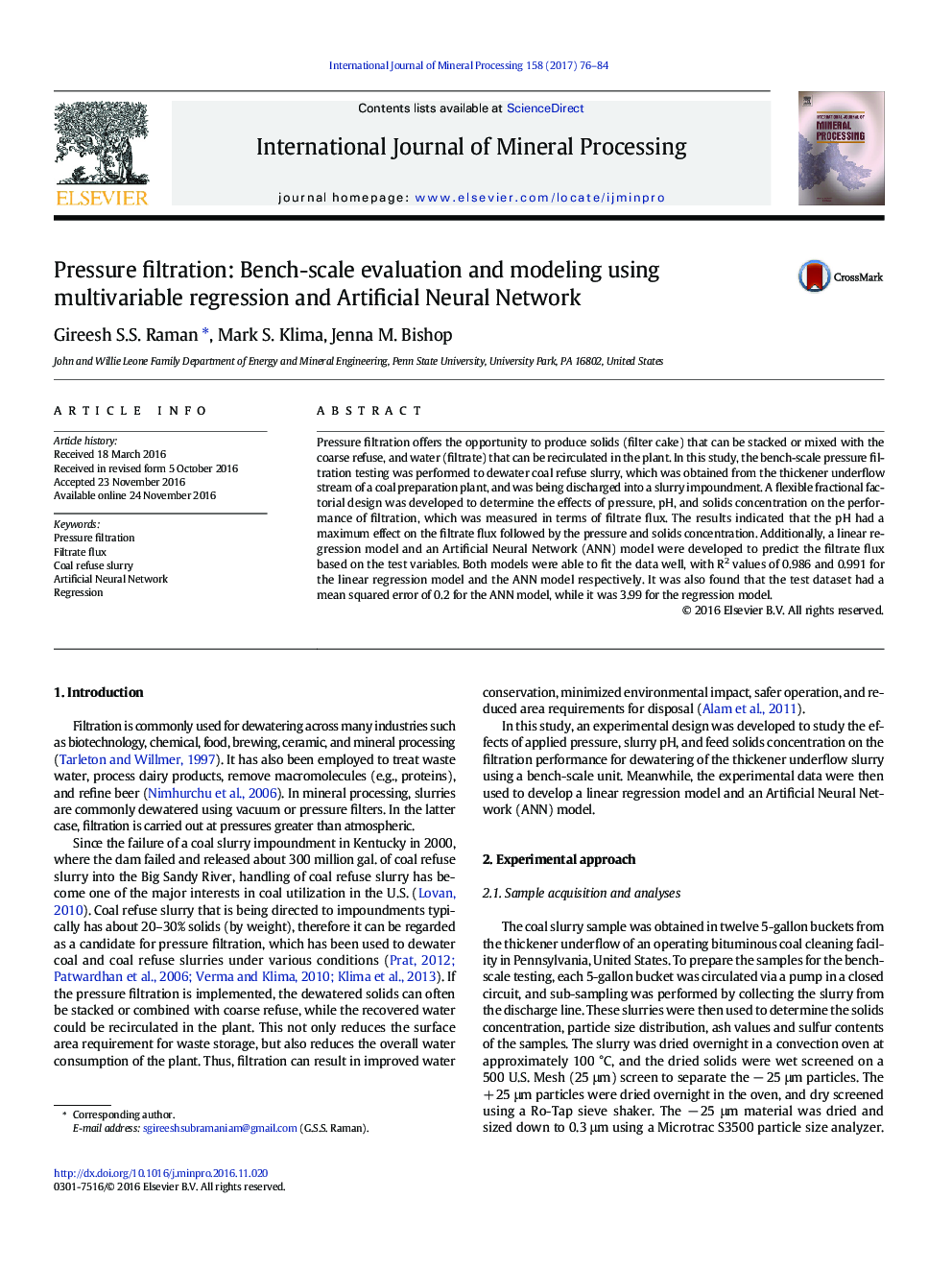| Article ID | Journal | Published Year | Pages | File Type |
|---|---|---|---|---|
| 4769228 | International Journal of Mineral Processing | 2017 | 9 Pages |
â¢Flexible fractional factorial design was developed to study the effects of pressure, pH and solids concentration.â¢Increasing pressure and decreasing pH increased the filtrate flux.â¢Solids concentration had minimal effect on filtrate flux.â¢ANN model outperformed the regression model in terms of predictive capability
Pressure filtration offers the opportunity to produce solids (filter cake) that can be stacked or mixed with the coarse refuse, and water (filtrate) that can be recirculated in the plant. In this study, the bench-scale pressure filtration testing was performed to dewater coal refuse slurry, which was obtained from the thickener underflow stream of a coal preparation plant, and was being discharged into a slurry impoundment. A flexible fractional factorial design was developed to determine the effects of pressure, pH, and solids concentration on the performance of filtration, which was measured in terms of filtrate flux. The results indicated that the pH had a maximum effect on the filtrate flux followed by the pressure and solids concentration. Additionally, a linear regression model and an Artificial Neural Network (ANN) model were developed to predict the filtrate flux based on the test variables. Both models were able to fit the data well, with R2 values of 0.986 and 0.991 for the linear regression model and the ANN model respectively. It was also found that the test dataset had a mean squared error of 0.2 for the ANN model, while it was 3.99 for the regression model.
